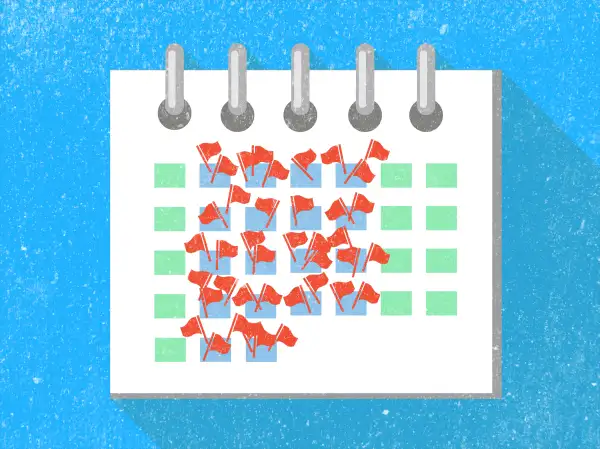This Is What's Wrong With a Four-Day Workweek

Switching from a five-day to a four-day workweek often is touted as a benefit for people who want to build more flexibility into their schedule, but it can be a trap for people who already find themselves stretched too thin. Overworked Americans might inadvertently add to their workload rather than reducing it, research suggests.
Adopting a condensed schedule, the thinking goes, forces workers to better prioritize their to-do lists, while dangling the promise of a three-day weekend—every weekend!—to keep people motivated. For working parents, it’s often cited as a way to cut down on the high cost of childcare, and it gives people with long commutes a financial break on what they have to pay in gas, tolls, or public transportation every week.
But the reality is that stretching the workday has drawbacks of its own. Ohio State University public health professor Allard Dembe noted in an article in The Conversation that people who regularly log extra hours are more likely to get hurt at work if they work in industrial settings, and more likely to suffer negative health effects "as a result of fatigue and stress that accumulate over a longer-than-normal working day." The primary problem with the four-day week, he observed, "is that whatever work needs to be done, needs to get done in the same amount of total time. Despite wishes to the contrary, there are still only 24 hours in a day."
A body of other research referenced by the Harvard Business Review found that people working long hours have a harder time making good judgment calls, managing their emotions and communicating—necessities in just about any job today.
The effects are especially pronounced on female workers, studies have found. "Women—especially women who have to juggle multiple roles—feel the effects of intensive work experiences and that can set the table for a variety of illnesses and disability," Dembe warned.
What’s more, if those last couple of hours every day in a four-day workweek aren’t as productive as they need to be, you could find yourself feeling pressure to come in on your day off to get more done, defeating the purpose of the four-day workweek in the first place. If you want to give a four-day week a shot, it's important to set firm boundaries around your hours, allow yourself breaks to recharge your batteries, and avoid letting work creep back into your extra day off.
Do you work a four-day week? Let us know at letters@moneymail.com.
